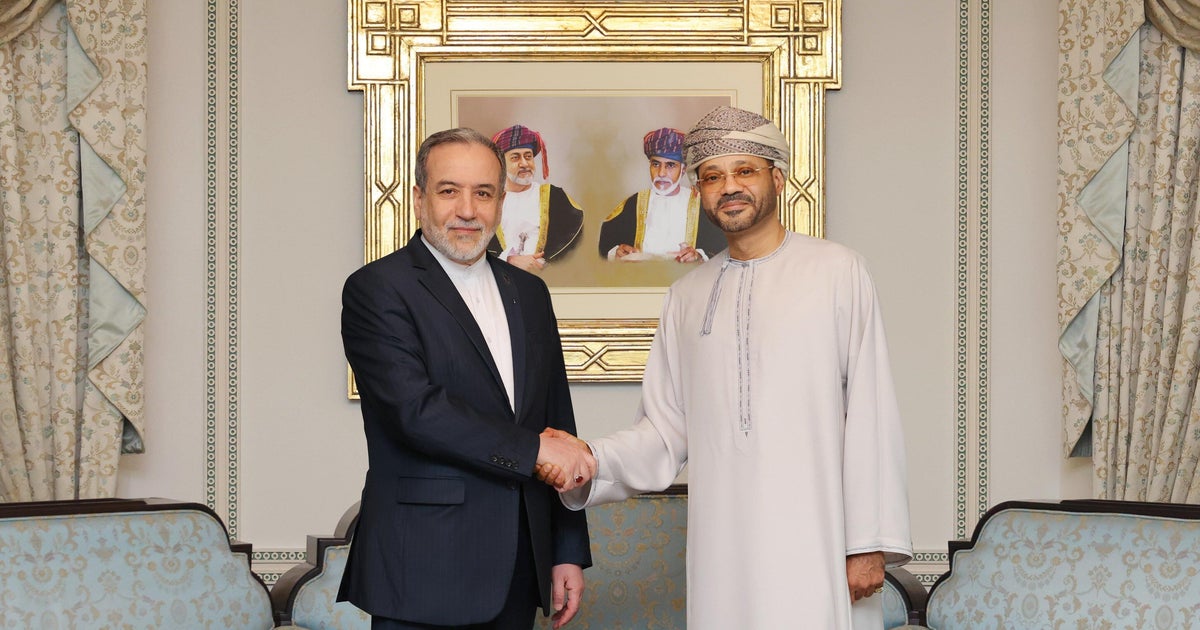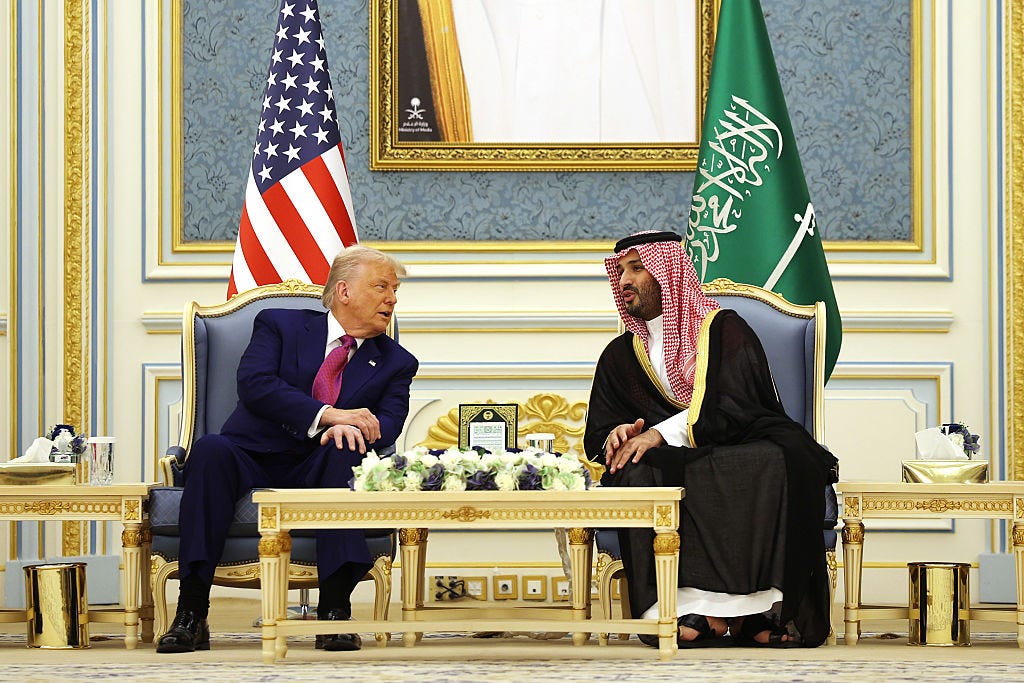The most precarious proliferation challenges faced by U.S.
As the world's attention remains trained on the spectacle of President Trump's second summit with North Korean leader Kim Jong Un this week in Vietnam, the broader approach of the U.S. to containing the world's would-be nuclear powers is also under scrutiny.
But the issue of weapons of mass destruction proliferation extends beyond nuclear capabilities and includes chemical, biological and radiological weapons, warns former U.S. Ambassador to the International Atomic Energy Agency (IAEA) Laura Holgate.
A number of foreign adversaries, including North Korea, maintain or aspire to develop alternative weapons programs that can pose significant security -- and even existential -- threats to nations worldwide.
"These are weapons that can kill massively," Holgate said, and controlling their development requires widespread international cooperation.
"This is not a job that any one country, even the United States, can handle alone," she said. "There's a lot of pieces that go into that ability to work internationally."
One of them, Holgate said, is credibility. "People need to want to work with you," she said.
"A second is expertise," said Holgate, who also served as senior director for Weapons of Mass Destruction Terrorism and Threat Reduction on President Obama's National Security Council.
"[The United States] has that in spades, but it's one thing to have people who know how to build our weapons and keep them secure. It's a different thing for those people to be able to interact effectively with other countries, other nationalities, other cultures; less technically capable people and institutions," she said.
In an interview with Intelligence Matters host and CBS News senior national security contributor Michael Morell, Holgate, who is now the vice president for materials risk management at the Nuclear Threat Initiative, detailed the threats each type of weapon can pose and offered an assessment of the U.S.' approach to some of the most precarious proliferation challenges today.
For much more from Michael Morell's conversation with Amb. Laura Holgate, you can listen to the new episode and subscribe to Intelligence Matters here.
North Korea
"This is going to be a much longer engagement than I think people initially had hoped," Holgate said, expressing skepticism that Kim would be willing, even as part of a good-faith negotiation, to start with a declaration of his existing inventory.
Although North Korea has dismantled some missile testing sites to date, it has declined to offer a full accounting of its overall stockpile and enrichment capabilities. Absent a declaration, validation of the regime's progress toward denuclearization could be next to impossible, Holgate said.
"[I]f you don't know what they have, then you can't gauge what you've destroyed as a percentage of what they have," Holgate said. "[N]o matter how well observed that destruction is, you don't know if it's 5 percent or 50 percent or 95 percent."
"Nobody expects those initial declarations to be perfect," she said, but a fulsome accounting offers one of the only reliable pathways to verification – which has been a central tenet of the U.S. policy toward the North.
Holgate also expressed concern about the coherence of the Trump administration's overall negotiating strategy.
"The Koreans have been preparing for this negotiation for decades," she said. "I'm not sure the same is true for the U.S. team."
While there is proven value in Trump and Kim engaging directly, she told Morell that the longer-term test will be in how the U.S. leverages other tools of influence it has remaining at its disposal.
"The challenge is, does the Trump administration really have a game plan, other than – 'Give it all up?'" she said. "I think that's not going to be the winning opening proposition. And I think it's got to be a very carefully calibrated set of gives and takes on each side that are similar in scale and degree of difficulty for each government," Holgate said.
She also noted that Kim has a demonstrated stockpile of other weapons, including chemical and biological agents, which add to its military threat. If Kim feels confident he has "enough" weaponry to serve as effective negotiating leverage, the risk he shares materials or technologies with other actors, including rogue groups, becomes significant, Holgate said.
Kim's regime is "the only government in the world that I actually worry about actively deciding to sell that material to somebody else," she told Morell.
Iran
Holgate, who was not a part of the negotiating team that brokered the 2015 Iran nuclear deal, is nevertheless a supporter both of its purpose and parameters.
"It bought us time," she said, "It was never going to be the 100 percent all-inclusive solution to all of the challenges of Iran."
"But everything that we have a problem with, in terms of Iran's behavior – whether it's mischief making in the region, whether it's support of terrorists, whether it's holding U.S. persons – is made harder if Iran has a nuclear weapon," Holgate told Morell.
While the U.S. is not known to be engaging in dialogue with Iran about the future of the deal, from which the Trump administration withdrew last spring, European nations have voiced a commitment to preserving it. In January, France, Germany and the United Kingdom launched a financial mechanism to facilitate some trade between Europe and Tehran.
The Trump administration has nonetheless called on Europe to pull out of the deal and reinstate punishing financial sanctions on Iran, something Holgate said was unmerited.
"There's no doubt in my mind" that the Iran deal "succeeded in blocking all of the possible paths to a weapon, and that the IAEA was effectively overseeing the implementation of that, confirming that the Iranians were doing the things that they were doing or that they had intended to do, that they were committed to do," Holgate said.
"But that's not to say that you pat yourself on the back and go home," she said. "What that does is, it creates space [to] work on the broader issues, which are mainly not about nuclear weapons."
Saudi Arabia
Saudi Arabia's nuclear ambitions were thrust suddenly into the spotlight in recent months, after commercial imagery emerged in January showing the beginnings of ballistic missile production efforts in the Kingdom.
A separate report, issued in February by Democrats on the House Oversight Committee, alleged that members of the Trump administration have sought to expedite the delivery of nuclear power technology to Saudi Arabia, despite potential conflicts of interest.
Holgate said high-ranking Saudi officials have, in the past, suggested the Kingdom might be interested in pursuing a nuclear program – especially as threats from Iran grew more pressing. But, she said, changes in Saudi Arabia's leadership, and especially the rise to power of Crown Prince Mohammed bin Salman, have recently made those expressions of interest more worrisome.
Last March, the Crown Prince said in an interview with CBS News' 60 Minutes that the Kingdom did not want to acquire a nuclear bomb on its own, but, "without doubt, if Iran developed a nuclear bomb, we will follow suit as soon as possible."
"I think we have to take the Crown Prince at his word," Holgate said. "And what is frightening about that, what's chilling about that, is two things."
"First of all, the Crown Prince seems not to understand that he is under an international treaty commitment on the Nonproliferation Treaty not to do that. And that he would be breaking that treaty, which would put him in the company of North Korea – which I think is not where Saudi Arabia wants to be," Holgate said.
"The second thing I find chilling about it is – no one in the U.S. government at a senior level stood up and said, 'Hey guy, that's not okay. Our cooperation with you, our relationship with you, is based on your being a member in good standing of the international community, and if you take that step, you're going to be North Korea,'" she continued.
"[T]he fact that there has not been more pushback, not just from the United States but from other governments against that very bald statement by the Crown Prince, I find shocking," Holgate said.




